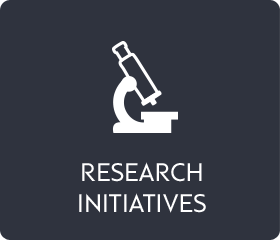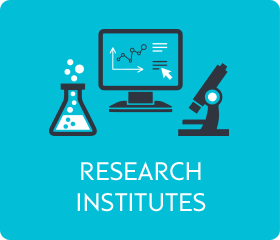Development of Knowledge through Excellence in Science
A quality university must reflect the current momentum of development in science and research. This reflection is needed not only in order to maintain the trend in the quality of scientific work (basic research) but is also associated with transfer of its applicable results into the economic sphere (applied research). Finally, it is crucial for education itself. It increases the employability and competitiveness of graduates at all levels of university studies, while playing an absolutely crucial role in doctoral studies. An analysis of trends in R&D points to a growing share of larger research teams in the production of leading scientific outputs with an international impact, including the increase in citations in the literature. Creating and ensuring sustainability of such teams (either at the university or in collaboration with other institutions) must remain a top priority as based on previous experience (IRAFM, LSRC, Vivarium, etc.), it can be stated that the existing teams bring the university considerable financial resources from national, but mostly international grants and institutional funding. At the same time, it would be very risky to focus exclusively on few partial areas that are currently popular and to neglect new areas of research that could become trends in the future or areas that apparently help solving social problems of our region, with their applicability extending into other countries. It is therefore necessary to have such quality assessment tools that will enable us to identify and develop strategic areas in which we can achieve excellence and thus results with a high social benefit. This notion is entirely in line with the concept of the Long-Term Strategic Plan of the Ministry of Education of the CR (and also reflects the newly developed IPN methodology), which reflects the efficiency of spending on R&D with respect to the quality, utility, and relevance of such activities. These criteria are most likely to be increasingly reflected in the funding of tertiary education and in the accreditation of degree programmes. In addition, it is assumed that the priorities of the support for excellence in research will be largely based on a strategy based on key international, national, and regional documents.
Therefore, the main objective of the university for the following periods must be active creation of conditions and opportunities for intensive development and sustainability of promising scientific teams with results at the international level. Such conditions can help the University of Ostrava to obtain permanent foreign researchers and to involve them in international networks and research and development projects (for instance, the current priorities are the challenges of Horizon 2020). Another strategic objective is to prepare a system solution enabling transfer of high-quality scientific results into educational activities (particularly in doctoral studies) and into the application sphere. We aim to purposefully create an image of the University of Ostrava as an academic workplace producing top scientific results. The UO must become an equal partner of top-ranking universities and other scientific institutions both in the Czech Republic and abroad. To this end, the university will promote cooperation with other universities and research institutions in the Czech Republic and abroad with aim to transfer experience and to share teaching, research, and development capacities. Although it is important to focus predominantly on the main directions of research in which the UO achieves excellent results at an international level, it is also necessary to promote creative areas which are capable of solving crucial social problems.
Updated: 08. 01. 2018






























